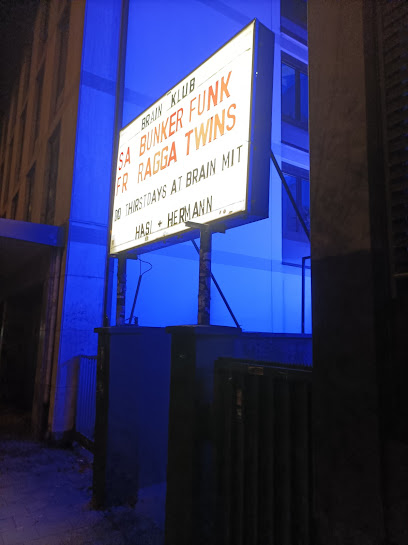
Harz Mountains: A Land of Legends and Landscapes
Explore the mystical Harz Mountains: Hike through ancient forests, discover medieval towns, and uncover legends in Germany's enchanting northern highlands.
The Harz Mountains, Germany's northernmost range, offer a captivating blend of natural beauty and rich history. Rising dramatically from the surrounding plains, the Harz is a land of dense forests, rugged peaks, and mystical folklore. Explore charming medieval towns like Wernigerode and Quedlinburg, hike through the Harz National Park, or ride the historic Brockenbahn steam train to the summit of the Brocken, the range's highest peak. Whether you seek outdoor adventure, cultural immersion, or a journey into German legends, the Harz Mountains promise an unforgettable experience, steeped in both natural wonder and historical significance. Discover a land where witches dance on mountaintops and silver mines whisper tales of bygone prosperity.
A brief summary to Harz
- Elend, DE
Local tips
- Ride the Brockenbahn: Take a nostalgic steam train journey to the summit of the Brocken for panoramic views and a taste of history.
- Explore the Caves: Discover the fascinating underworld of the Harz by visiting one of the many caves, such as the Rübeland Caves with their stunning stalactites and stalagmites.
- Hike the Harzer-Hexen-Stieg: Embark on a multi-day hike along the Harz Witches' Trail, a scenic route that traverses the region's most beautiful landscapes.
- Visit Quedlinburg: Step back in time in this UNESCO World Heritage town, with its well-preserved medieval architecture and charming atmosphere.
- Try local cuisine: Indulge in hearty Harz specialties like Harzer Käse (a sour milk cheese) and wild game dishes at traditional restaurants.
Getting There
-
Public Transport
From major towns in the Harz region like Wernigerode, Quedlinburg, or Goslar, the Harzer Verkehrsbetriebe (HVB) buses provide access to Elend. Check the HVB website or local tourist information for the most up-to-date bus schedules and routes to Elend. A single journey ticket costs approximately €3-€5, depending on the distance. Consider purchasing a HarzCard or HATIX ticket for unlimited travel on local buses and trams during your stay if you plan to explore the region extensively. The HATIX ticket is often included with accommodation.
-
Driving
If driving from a nearby town such as Wernigerode, follow the well-signed roads towards Elend. Parking is available in Elend, but it can be limited, especially during peak season. Parking fees typically range from €2-€5 per day. Be aware that some roads in the Harz Mountains can be narrow and winding, so drive carefully, especially in inclement weather.
-
Walking
For hikers already in the Harz National Park, numerous well-marked trails lead to Elend. Consult a hiking map or local tourist information for trail options and difficulty levels. The final approach to Elend will likely involve walking along paved roads or well-maintained paths. Be sure to wear appropriate footwear and carry water, especially during longer hikes.
Discover more about Harz
Iconic landmarks you can’t miss
Harz
0.0 km
Explore the mystical Harz Mountains: Hike through ancient forests, discover medieval towns, and uncover legends in Germany's enchanting northern highlands.
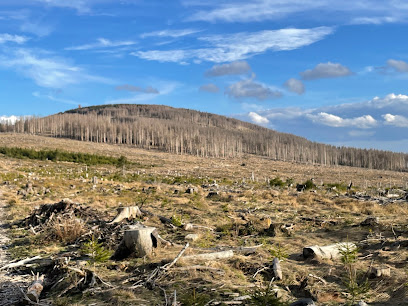
Alter Grenzweg
1.2 km
Hike a poignant path through history on the Alter Grenzweg near Wernigerode, where the former East-West German border now thrives as a Green Belt.
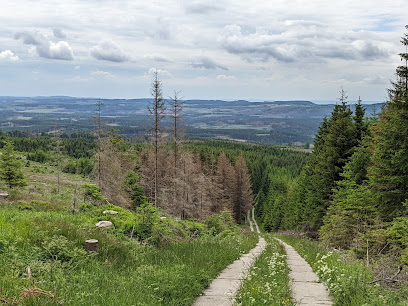
Wurmberg-Steinbruch (Vogelschutzgebiet)
1.5 km
Discover the serene beauty of Wurmberg-Steinbruch near Braunlage, a reclaimed quarry turned bird sanctuary, offering a tranquil escape into nature in the Harz.
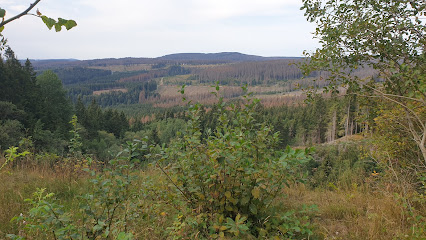
Scherstorklippen
1.6 km
Discover the majestic Scherstorklippen, a stunning granite tor formation in the Harz Mountains, offering panoramic views, unique hiking trails, and a glimpse into the region's rich natural history.
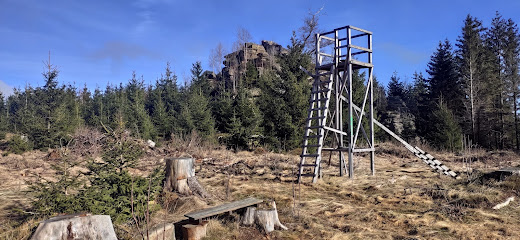
Oberer Bodewasserfall
2.3 km
Explore the breathtaking Oberer Bodewasserfall in Braunlage, a stunning natural waterfall that captivates with its serene beauty and outdoor adventures.
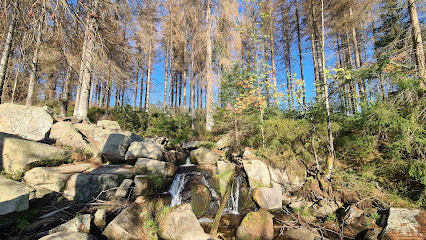
Märchenpfad "Das weiße Reh"
2.6 km
Hike through an enchanting fairytale in Harz National Park on the Märchenpfad Das weiße Reh, a 5km trail to Brocken's peak, perfect for families seeking adventure and folklore.
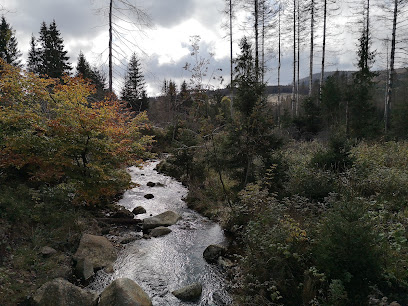
Eckerlochstieg
2.6 km
Experience the Harz National Park's rugged beauty on the Eckerlochstieg, a challenging hiking trail to the Brocken summit offering stunning views and diverse landscapes.
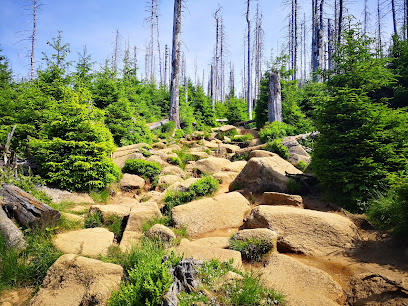
Eckerlochstieg (Brücke über Schwarzes Schluftwasser)
3.4 km
Discover the enchanting Eckerlochstieg bridge in Harz National Park: a scenic gateway to breathtaking hikes, lush forests, and the majestic Brocken peak.
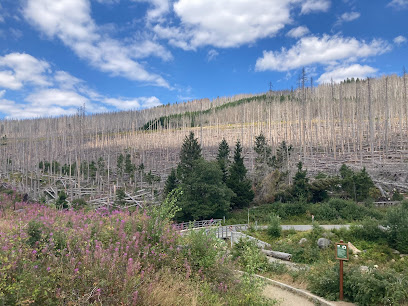
Urwaldstieg
4.4 km
Discover the untouched beauty of the Harz National Park on the Urwaldstieg, a short trail through a centuries-old primeval forest near Brocken mountain.
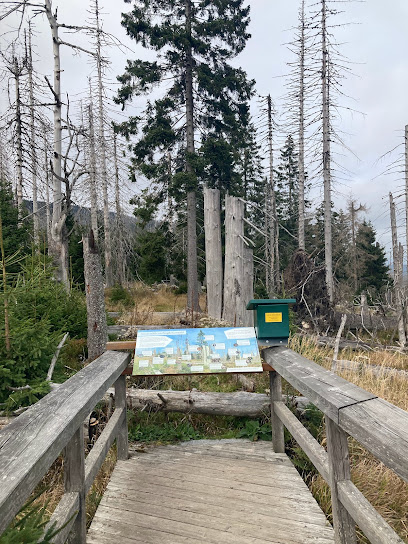
Brocken
5.6 km
Ascend to the legendary Brocken, the Harz Mountains' highest peak, and discover breathtaking views, captivating history, and enchanting folklore amidst a unique subalpine landscape.
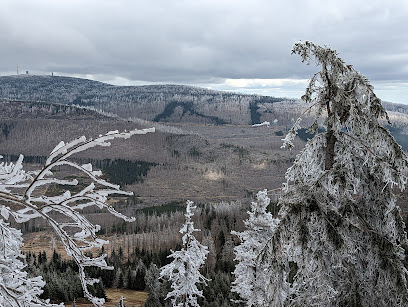
Ottofelsen
7.5 km
Discover breathtaking views and thrilling climbs at Ottofelsen, a granite landmark in the heart of Germany's Harz Mountains, offering a unique blend of natural beauty and outdoor adventure.
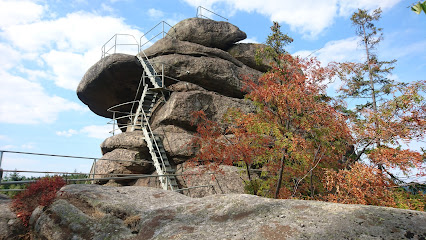
Nationalpark-Besucherzentrum TorfHaus
8.8 km
Discover the Harz National Park: Explore interactive exhibits, hike scenic trails, and immerse yourself in the wilderness from the TorfHaus Visitor Center, your gateway to adventure.
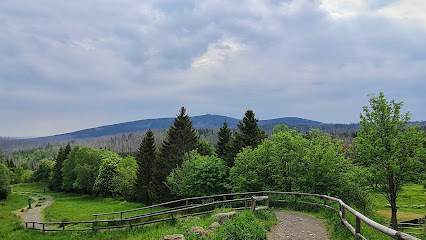
Wolfswarte
10.0 km
Discover panoramic views and a rich history at the Wolfswarte, a captivating quartzite rock formation in the heart of the Harz Mountains, perfect for hikers and nature enthusiasts.
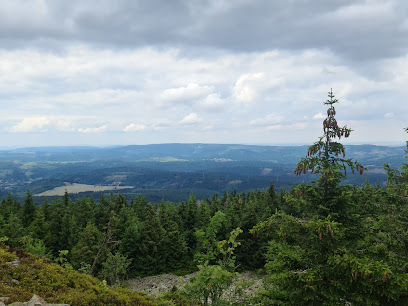
Harzer Bachtäler
11.2 km
Discover the serene beauty of the Harzer Bachtäler: a haven of pristine streams, vibrant meadows, and ancient forests in the heart of the Harz Mountains, perfect for hiking and nature exploration.
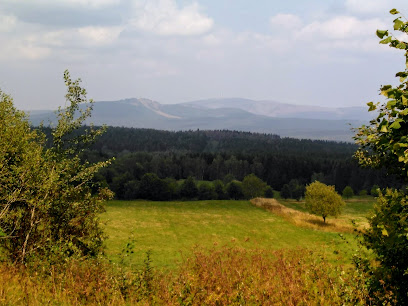
Ilsestein
11.4 km
Discover the legendary Ilsestein in the Harz Mountains: Hike to the summit for breathtaking views, explore its rich history, and immerse yourself in the beauty of the Ilse Valley.
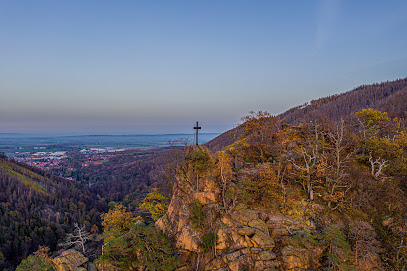
Unmissable attractions to see
Aussichtsturm Wurmberg
1.2 km
Discover breathtaking views at Aussichtsturm Wurmberg, a premier tourist attraction in Braunlage, showcasing the majestic beauty of the Harz Mountains.
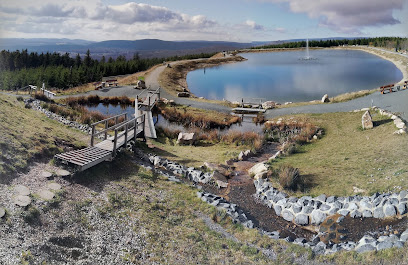
Untere Bodefälle
2.0 km
Discover the breathtaking beauty of Untere Bodefälle, where cascading waterfalls meet serene forest trails in the heart of the Harz mountains.
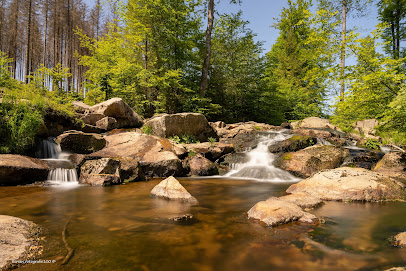
Eulenbrunnen
2.1 km
Experience the serene beauty of Eulenbrunnen in Wernigerode, a charming fountain surrounded by lush landscapes and rich local culture.
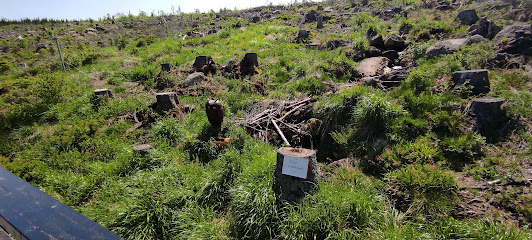
Kurpark Schierke
2.4 km
Explore the enchanting Kurpark Schierke in the Harz Mountains, a stunning state park perfect for nature lovers and outdoor enthusiasts.
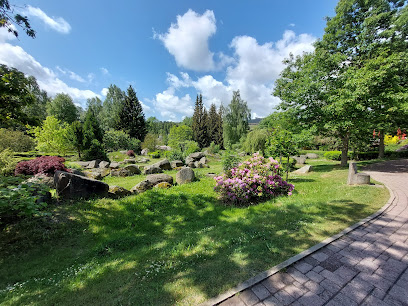
Wurmberg Gondola Lift
2.5 km
Explore the breathtaking heights of the Wurmberg Gondola Lift, where adventure meets stunning views in the heart of the Harz Mountains.
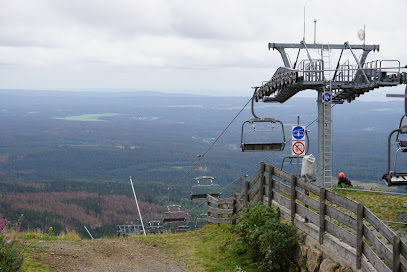
Brunnen
2.5 km
Experience the serene beauty of Brunnen, a hidden gem in the Harz region that offers breathtaking landscapes and outdoor adventures.
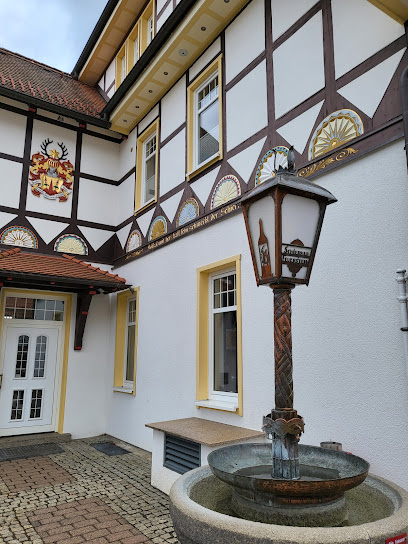
Nationalparkhaus Schierke
2.6 km
Explore the stunning landscapes and rich biodiversity of the Harz Mountains at Nationalparkhaus Schierke, your gateway to adventure and tranquility.
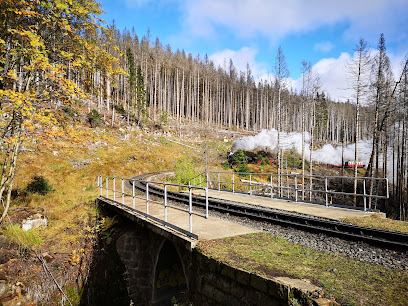
Brocken Coaster Thomas mask
2.8 km
Feel the thrill of summer tobogganing at the Brocken Coaster in Wernigerode, where adventure meets breathtaking views in the heart of the Harz Mountains.
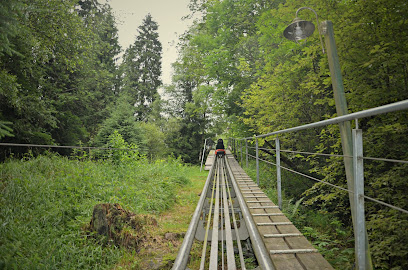
Eichhörnchenbrunnen
2.9 km
Explore Eichhörnchenbrunnen in Braunlage, a scenic fountain surrounded by nature's beauty and local wildlife, perfect for a tranquil getaway.
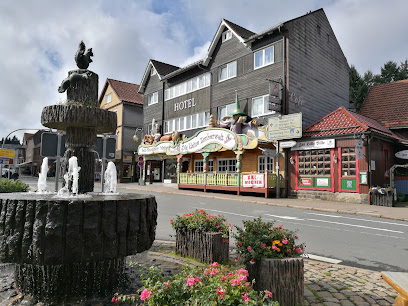
Haifischfelsen
2.9 km
Experience the breathtaking beauty of Haifischfelsen, a premier hiking area in Wernigerode, perfect for nature lovers and adventure seekers.
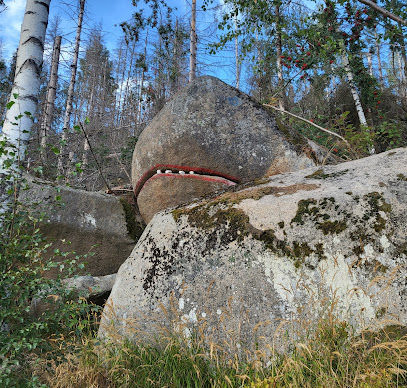
Märchenpfad Braunlage
2.9 km
Explore the whimsical Märchenpfad Braunlage, where fairy tales come to life against the stunning backdrop of the Harz mountains.
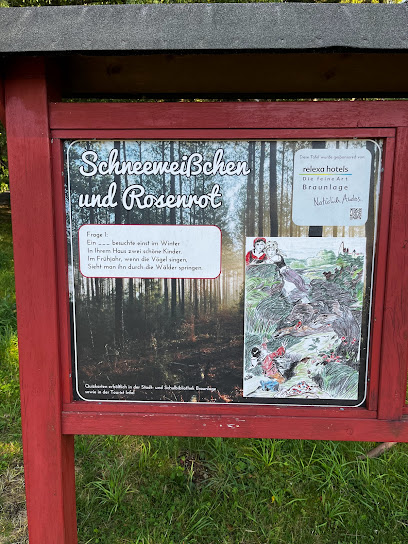
Gondelteich
3.0 km
Explore the tranquil beauty of Gondelteich in Braunlage, a serene lake surrounded by lush forests, perfect for relaxation and outdoor activities.
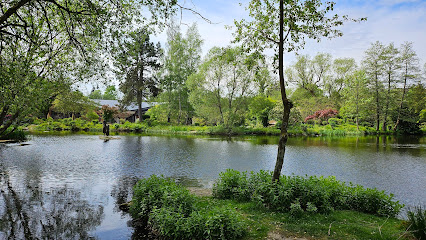
Kamelfichte
3.0 km
Discover the serene charm of Kamelfichte in Braunlage, where nature's beauty and peaceful ambiance create the perfect escape.
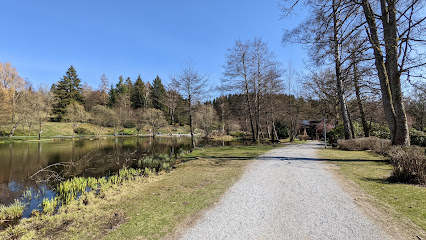
FIS-Ski- und Heimatmuseum
3.0 km
Explore the FIS-Ski- und Heimatmuseum in Braunlage for an unforgettable journey through skiing history and local culture in the scenic Harz mountains.
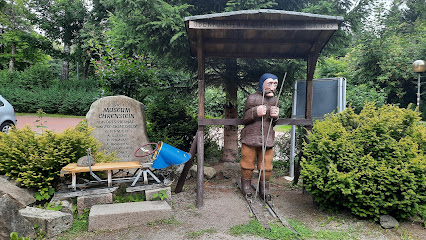
Elendsburg
3.1 km
Explore Elendsburg, a historical landmark in Elend, where nature meets heritage in the heart of Germany's stunning landscape.
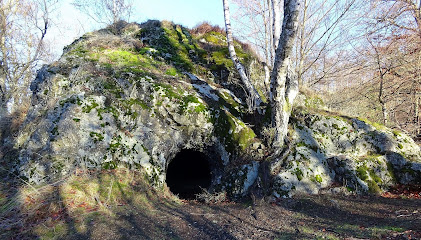
Essential places to dine
Hexenritt Alm
0.3 km
Discover Hexenritt Alm: A delightful restaurant offering traditional German cuisine and stunning mountain views in Braunlage.
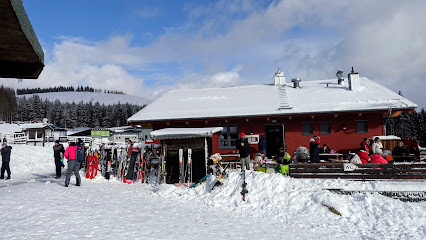
Hexenritt Schirmbar
0.3 km
Experience authentic Bavarian cuisine at Hexenritt Schirmbar – where nature meets tradition in Braunlage's beautiful landscape.
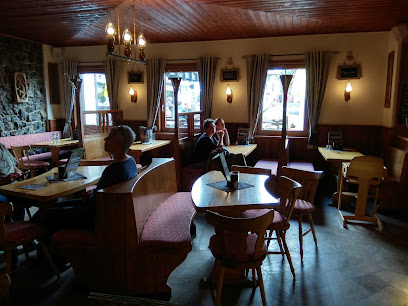
Gasthaus Zur Klippe Schierke
2.4 km
Experience authentic German cuisine at Gasthaus Zur Klippe Schierke, where every dish tells a story of tradition and flavor amidst scenic beauty.
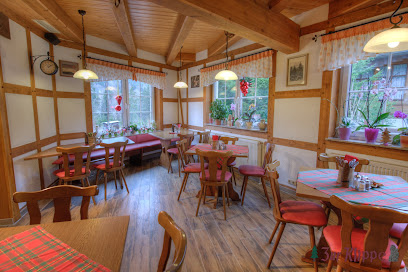
Café am Kurpark
2.5 km
Discover authentic German cuisine at Café am Kurpark in Wernigerode—your perfect spot for relaxation amidst beautiful park scenery.
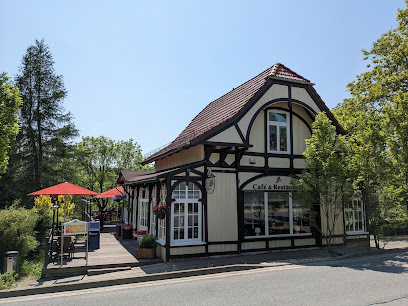
Tenne Schwof & Schmaus Am Blueberry Hill
2.5 km
Discover the flavors of Braunlage at Tenne Schwof & Schmaus Am Blueberry Hill—where culinary tradition meets modern dining in a stunning setting.
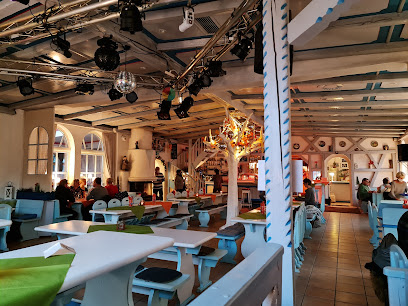
DasVielleicht
2.7 km
Discover culinary excellence at DasVielleicht in Braunlage, where local flavors meet exceptional hospitality in a charming setting.
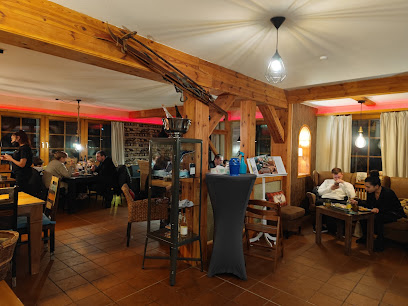
Villa Bodeblick ǀ Hotel & Restaurant
2.7 km
Discover Villa Bodeblick: A charming hotel and restaurant in Wernigerode offering delightful breakfasts and serene accommodations amidst stunning landscapes.
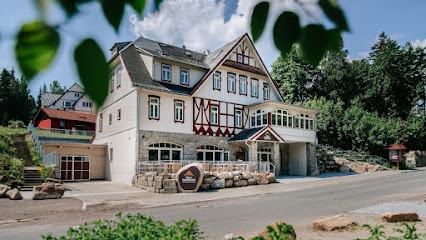
Harz Hotel Altes Forsthaus Braunlage
2.8 km
Discover comfort and authentic German cuisine at Harz Hotel Altes Forsthaus in Braunlage - your gateway to the scenic beauty of the Harz mountains.

Montevino Vin'Osteria
2.8 km
Discover the best breakfast and pizza experience in Wernigerode at Montevino Vin'Osteria.
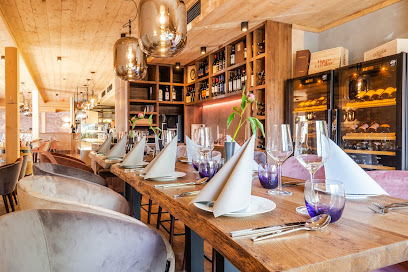
Restaurant Luis
2.9 km
Experience exquisite local cuisine in the heart of Schierke at Restaurant Luis - where every meal tells a story.
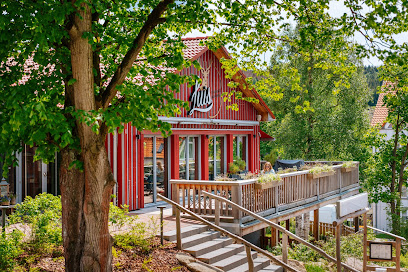
Moni's Hexenhäuschen
3.0 km
Experience the enchanting flavors at Moni's Hexenhäuschen in Braunlage - where fresh fish meets fruity delights in a magical setting.
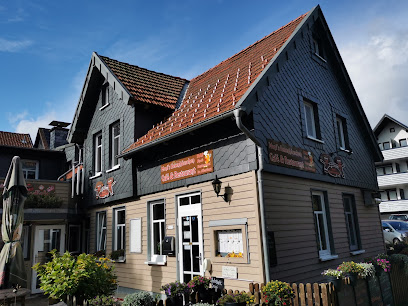
La Rock
3.1 km
Experience culinary excellence at La Rock in Braunlage – where local flavors meet international cuisine for an unforgettable dining adventure.
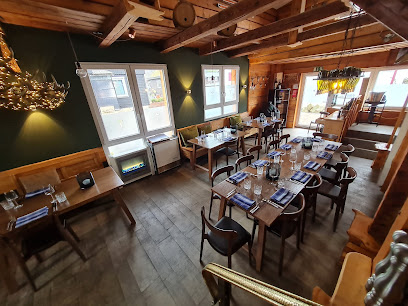
Kleine Auszeit
3.1 km
Discover exquisite German cuisine at Kleine Auszeit in Braunlage – where every meal is a delightful journey through local flavors.
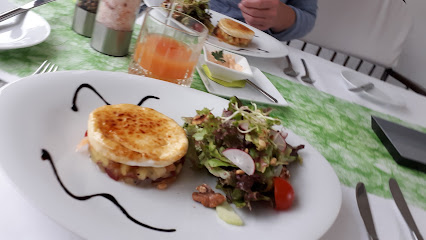
Karthi‘s
3.1 km
Discover Karthi's in Braunlage: where delicious grilled flavors meet warm hospitality in a charming setting.
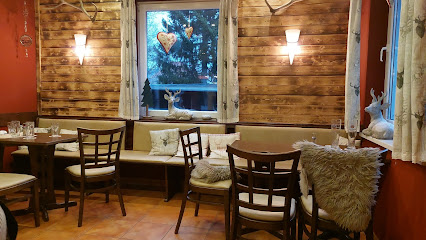
JASPER Grill Bar & Lounge / Club
3.1 km
Discover culinary delights and vibrant nightlife at JASPER Grill Bar & Lounge in Braunlage – where every meal is an experience!
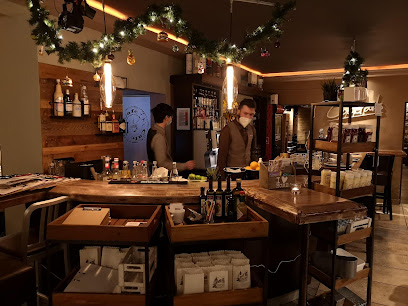
Markets, malls and hidden boutiques
Schierker Feuerstein Stammhaus
2.5 km
Explore the rich tradition of Schierker Feuerstein, a unique liqueur brand in the heart of the Harz Mountains, offering tours and charming accommodations.
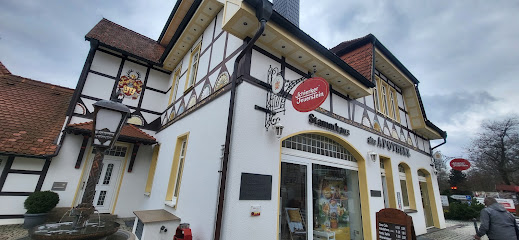
Harzspots GmbH
2.8 km
Explore the Harz Mountains with Harzspots GmbH: Your premier tourist information center in Wernigerode, Germany.
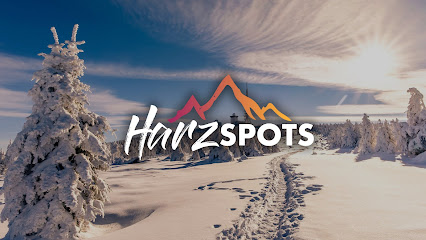
Harzsneaks
2.9 km
Discover unique styles and local flair at Harzsneaks, the premier clothing store in Braunlage, perfect for fashion-savvy tourists.
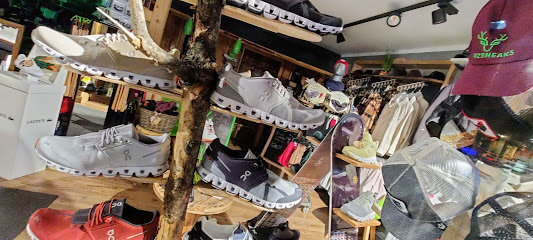
Harzer Spezialitäten & Brotzeitstube puppe‘s
2.9 km
Experience the authentic taste of the Harz region at Puppe’s, a delightful deli and bistro in Braunlage offering local specialties and souvenirs.
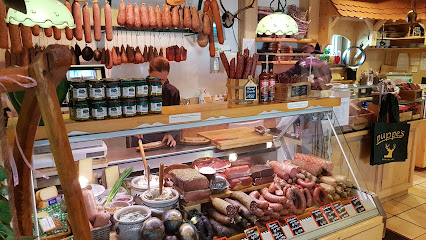
Ottos Sport & Tracht
2.9 km
Discover the charm of German traditions at Ottos Sport & Tracht, your go-to destination for authentic costumes and outdoor sports gear in Braunlage.
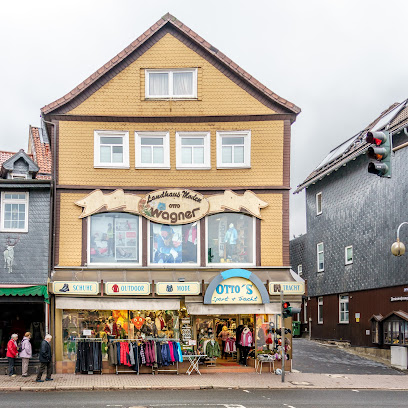
Sühl´s Harzspezialitäten
3.1 km
Discover the authentic flavors of the Harz region at Sühl´s Harzspezialitäten, the premier butcher shop in Braunlage, Germany.
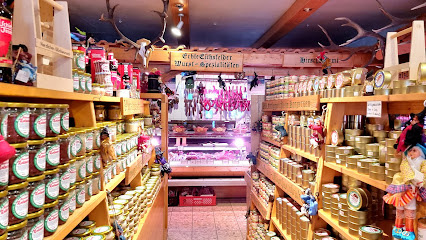
Gamaswelt Braunlage
3.1 km
Discover unique souvenirs and local crafts at Gamaswelt Braunlage, a charming gift shop in the heart of the picturesque town of Braunlage.
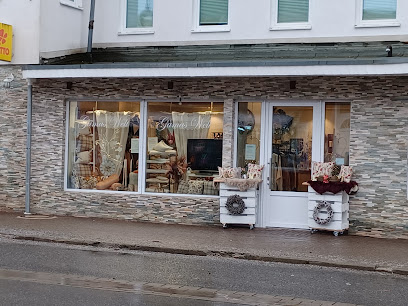
Eckartsberg Fair & Organic Fashion
3.2 km
Shop sustainably at Eckartsberg Fair & Organic Fashion, where style meets eco-consciousness in the heart of Braunlage.
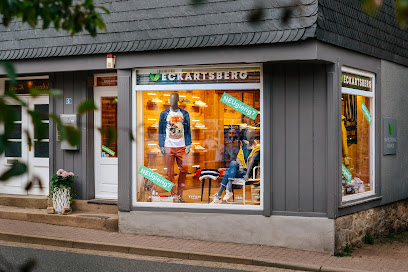
KiK Braunlage
3.6 km
Discover budget-friendly fashion and home essentials at KiK Braunlage, your go-to destination for affordable shopping in a charming setting.
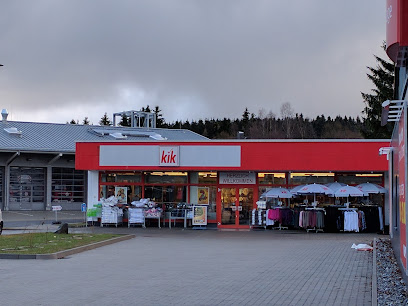
Drei Annen Hohne
6.8 km
Discover the enchanting Harz Mountains from Drei Annen Hohne, a picturesque train station perfect for outdoor adventures and scenic exploration.
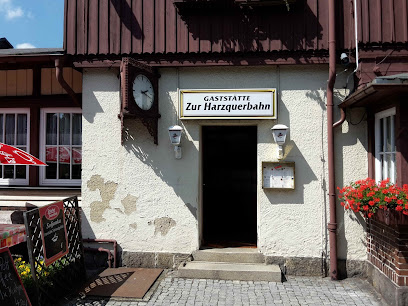
Brockenbauer Thielecke
8.1 km
Experience the best of German cuisine at Brockenbauer Thielecke – a must-visit steakhouse in Tanne, offering delicious meals and a cozy atmosphere.
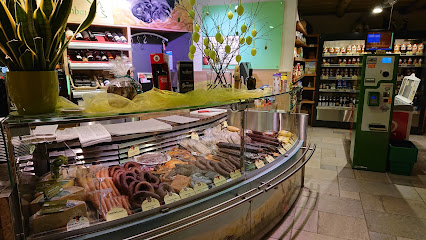
Globetrotter Equipment GmbH
8.8 km
Discover outdoor adventures at Globetrotter Equipment GmbH in Altenau - your one-stop shop for camping, skiing, and climbing gear.

Harzturm GmbH
8.9 km
Experience breathtaking views and family-friendly fun at Harzturm GmbH, your destination in the heart of the Harz Mountains.
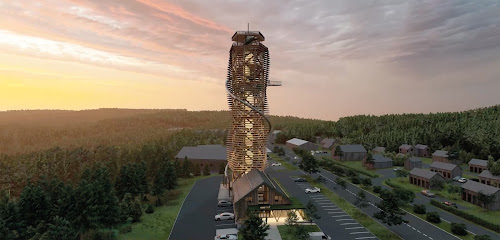
Waldschwimmbad Okerteich
12.9 km
Experience the serene beauty of Waldschwimmbad Okerteich, an outdoor swimming pool surrounded by breathtaking nature, perfect for relaxation and family fun.
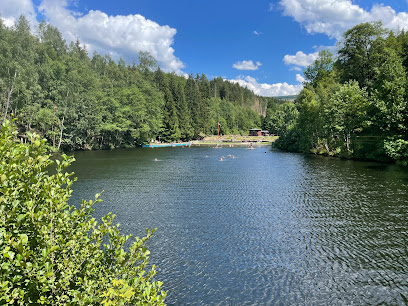
Wergona Chocolate GmbH
13.8 km
Discover the magic of artisanal chocolates at Wergona Chocolate GmbH in Wernigerode, where every bite is a delightful experience.

Essential bars & hidden hideouts
Schirmbar Hexenritt
0.3 km
Experience the charm of the mountains at Schirmbar Hexenritt, a cozy bar in Braunlage offering stunning views and a vibrant atmosphere.
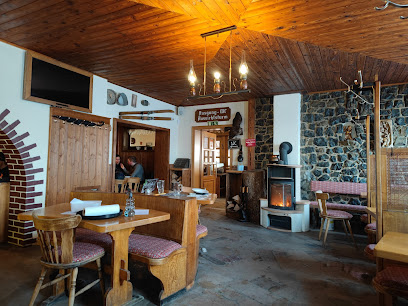
Pension Mühlhahn
2.3 km
Discover the charm of Pension Mühlhahn, your cozy guest house in Wernigerode, offering delightful dining and breathtaking views of the Harz mountains.
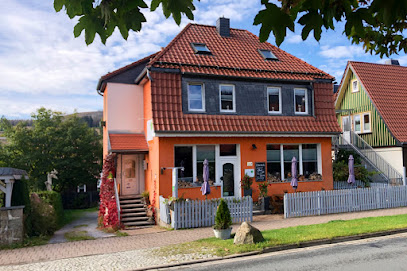
Bar Milano im San Siro
2.5 km
Discover Bar Milano in Braunlage, where Italian hospitality meets vibrant nightlife with cocktails and tapas to delight every traveler.
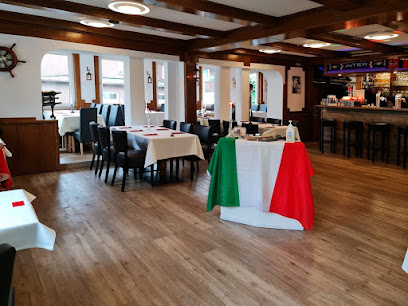
Travellers Cafe Bar
2.5 km
Experience the vibrant atmosphere of Travellers Cafe Bar in Braunlage, where friendly service and a cozy ambiance meet for an unforgettable night.
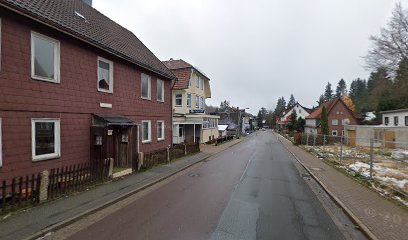
Hotel & Restaurant Memory in Braunlage
2.7 km
Discover Braunlage's Memory Hotel & Restaurant, where comfort meets delightful dining and a vibrant bar experience amidst breathtaking nature.
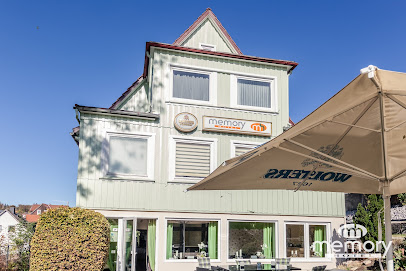
Hirschgrund-Biergarten
2.8 km
Experience the beauty of Braunlage at Hirschgrund-Biergarten, where local brews and stunning views combine for a perfect getaway.
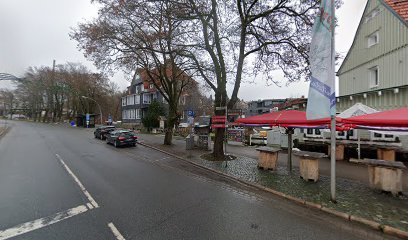
John's Bar
2.9 km
Discover the cozy atmosphere of John's Bar in Braunlage, a perfect retreat after enjoying the breathtaking Harz mountains.

Hille-Bille „betreutes Trinken“
2.9 km
Discover the charm of Hille-Bille, a cozy gastropub in Braunlage, where delightful drinks and a warm atmosphere await tourists and locals alike.
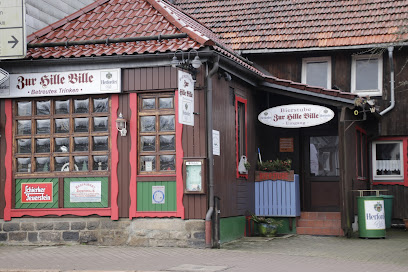
Hotel Wagner - Die Kleine Zauberwelt
2.9 km
Experience the perfect blend of comfort and fine dining at Hotel Wagner - Die Kleine Zauberwelt in Braunlage, a hidden gem in the Harz mountains.
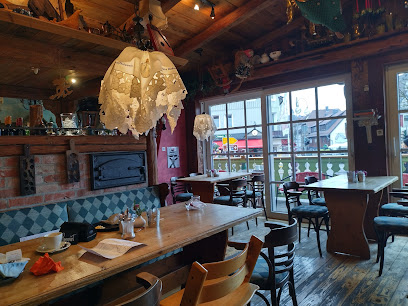
Zum Harzer Roller
3.0 km
Experience authentic German cuisine in the heart of Braunlage at Zum Harzer Roller, where local flavors and a cozy atmosphere await.
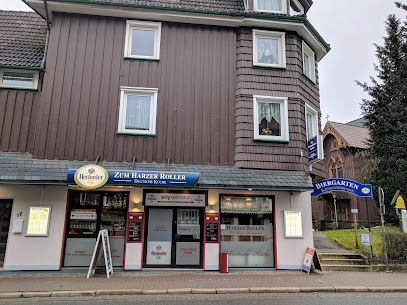
The VALHALLA Bar
3.0 km
Discover the vibrant nightlife at The VALHALLA Bar in Braunlage, where every evening is filled with fun, great drinks, and unforgettable moments.
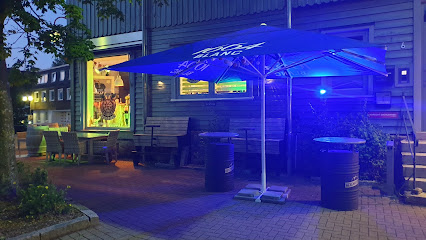
Drink'A'Bell Pub und Café
3.1 km
Experience the vibrant ambiance of Drink'A'Bell Pub und Café, where live music, delicious food, and refreshing drinks unite in Braunlage.
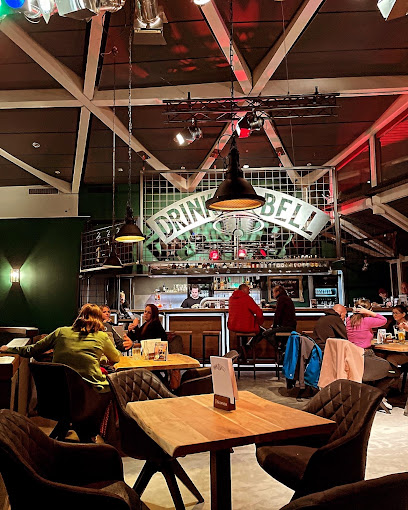
BegebaR
3.2 km
Discover the inviting atmosphere of BegebaR, a must-visit bar in Braunlage offering local brews, cozy vibes, and vibrant community interactions.

Waldgaststätte zur Kamelfichte
4.0 km
Experience authentic German cuisine and a charming beer garden in the heart of Braunlage's stunning natural landscape.

Bierchen Bierchen - die gemütliche Bergkneipe
9.1 km
Discover the cozy embrace of Bierchen Bierchen, the mountain pub in Sankt Andreasberg, where local charm meets refreshing brews and hearty food.
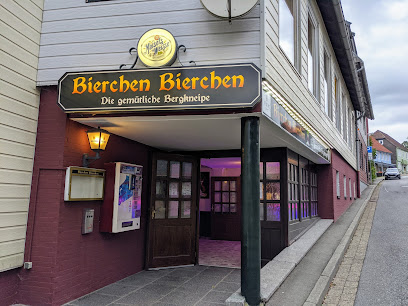
Nightclubs & after hour spots
Klima Club Lounge
13.7 km
Discover the vibrant nightlife of Ilsenburg at Klima Club Lounge, where disco meets lounge in an unforgettable atmosphere.

Elmo Klub Wernigerode
13.8 km
Experience Wernigerode's nightlife at Elmo Klub, where vibrant music and a lively atmosphere await every visitor seeking a memorable night out.
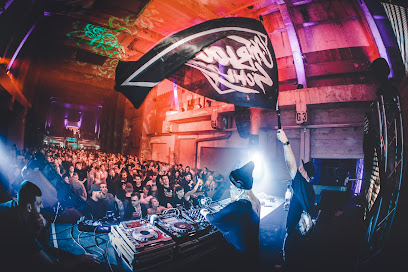
Harz-Mountains Ranch
16.1 km
Discover the vibrant live music scene at Harz-Mountains Ranch, nestled in the stunning Harz Mountains, perfect for unforgettable nights out.
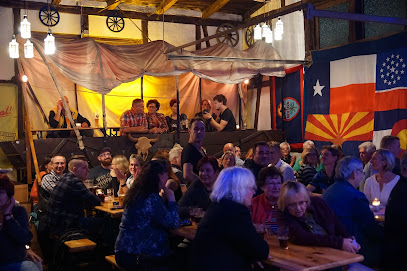
MLK Area Blankenburg
21.6 km
Dive into the lively nightlife at MLK Area Blankenburg, where great music, drinks, and a vibrant atmosphere await.
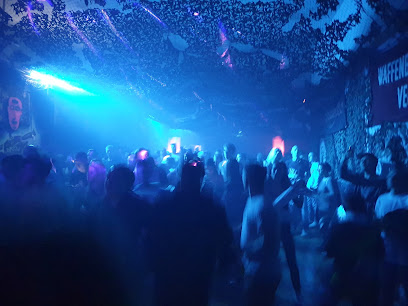
Harz Club
21.7 km
Experience vibrant nightlife at Harz Club in Clausthal-Zellerfeld, where music, dance, and fun come together for an unforgettable evening.
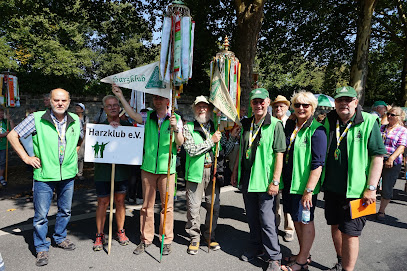
HarzMATCH.de
23.2 km
Discover the lively nightlife at HarzMATCH.de in Blankenburg (Harz), where music, dancing, and social connections await every visitor.
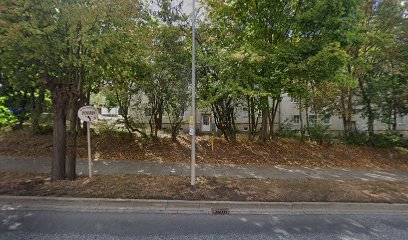
Nachtschicht
25.4 km
Immerse yourself in the electric atmosphere of Nachtschicht, Goslar's top disco club, where unforgettable nights await with music and dance.
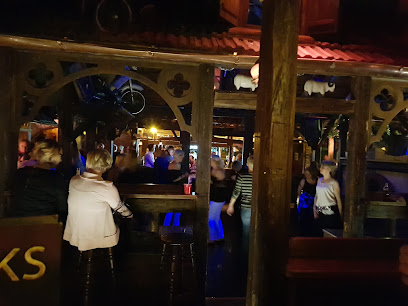
Klubraum deluxe
25.8 km
Discover the cozy warmth of Klubraum Deluxe, a charming bar in Timmenrode perfect for unwinding and enjoying local drinks.

Palithi Discotheque
26.5 km
Discover the energy and excitement of Palithi Discotheque, a top night club in Herzberg am Harz for music lovers and party enthusiasts.
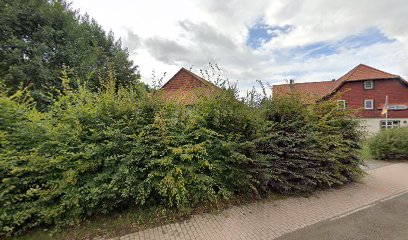
Bergtheater Thale
27.4 km
Discover the enchanting Bergtheater Thale, where captivating performances meet breathtaking views in the heart of the Harz Mountains.
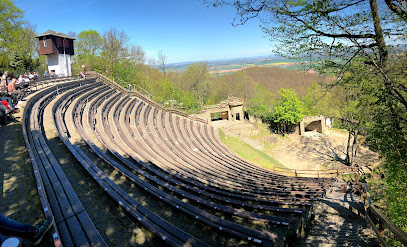
MIP
28.8 km
Discover the lively nightlife at MIP, a premier night club in Osterode am Harz, where unforgettable moments and vibrant music await.

Discothek Beat Club
29.3 km
Discover the vibrant nightlife of Langelsheim at Discothek Beat Club, the ultimate destination for music lovers and party enthusiasts.
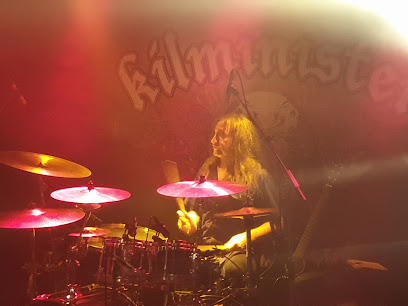
Party San Open Air
53.3 km
Experience electrifying nightlife at Party San Open Air in Nottertal-Heilinger Heights, a must-visit destination for music lovers and party enthusiasts.
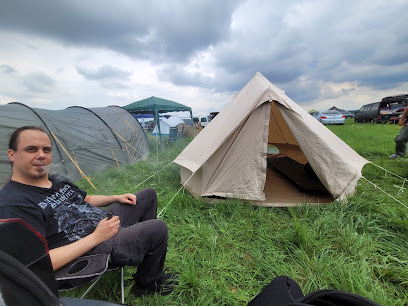
Stereowerk
56.1 km
Discover the electrifying atmosphere of Stereowerk, Braunschweig's nightlife gem, where music and dance come together in an unforgettable experience.

Brain Klub - Braunschweig
57.1 km
Unleash your spirit and dance the night away at Brain Klub, Braunschweig's premier disco club, where every night is a celebration of music and joy.
